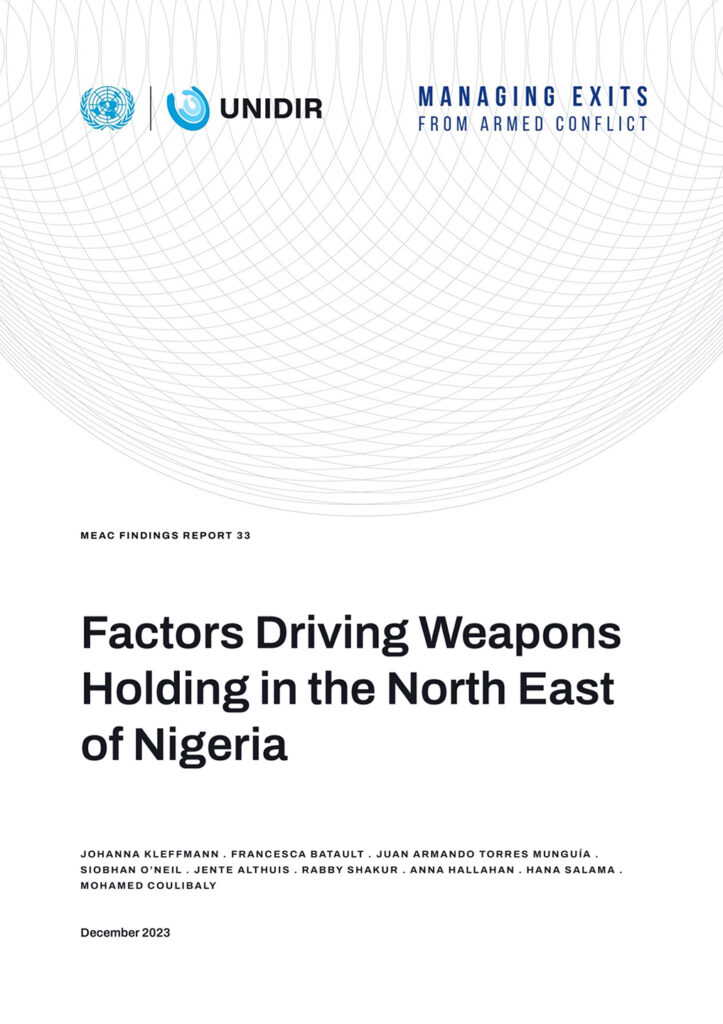This MEAC findings report is based on data from three surveys conducted across the North East of Nigeria from February 2022 to November 2023. These surveys were conducted with unaffiliated community members, ex-associates from different armed groups, and current and ex-affiliates of community security organizations like the CJTF.
The report examines the factors driving weapons holding in the North East of Nigeria and determines if former associates of Boko Haram and community security groups are retaining their weapons (or rearming later) in order to strengthen disarmament efforts and reduce armed violence in the region. This report highlights a range of social, civic and victimization factors related to weapons holding. These findings can inform the design and implementation of conflict prevention and disarmament strategies in the North East of Nigeria.
This is a joint report containing original data and analysis from MEAC, as well as contributions from UNIDIR’s Conventional Arms and Ammunition Programme and UNIDIR’s Gender and Disarmament Programme. The multi-perspective approach brought to bear for this study is essential for developing a holistic and nuanced understanding of how and why different populations arm themselves and what conditions lead them to lay aside their weapons, questions which have significant implications for the safety and peacebuilding efforts in a region that has long suffered from insurgent violence.
Citation: Johanna Kleffmann, Francesca Batault, Juan Armando Torres Munguía, Siobhan O’Neil, Jente Althuis, Rabby Shakur, Anna Hallahan, Hana Salama and Mohamed Coulibaly (2023). "Factors Driving Weapons Holding in the North East of Nigeria,” Findings Report 33, UNIDIR, Geneva, Switzerland. https://doi.org/10.37559/MEAC/23/11
